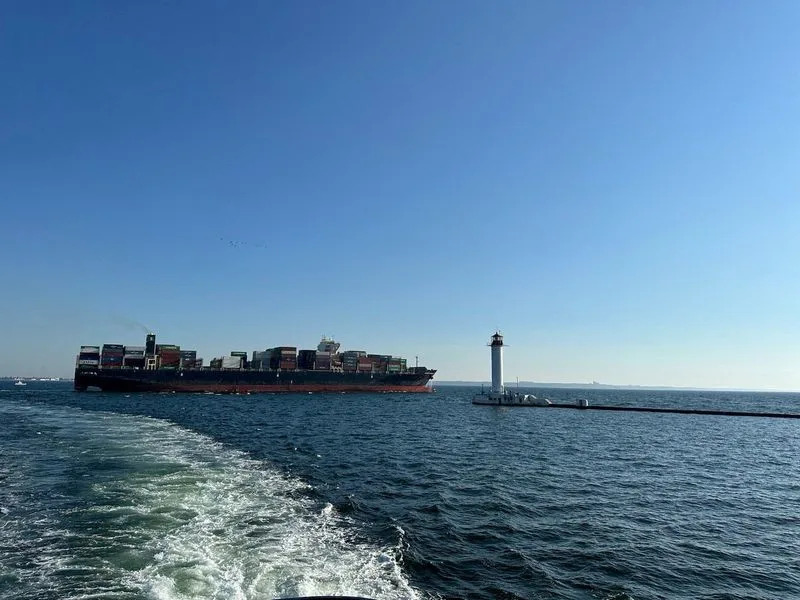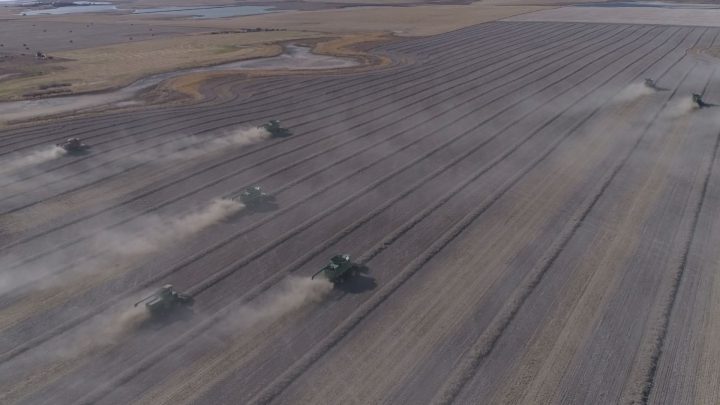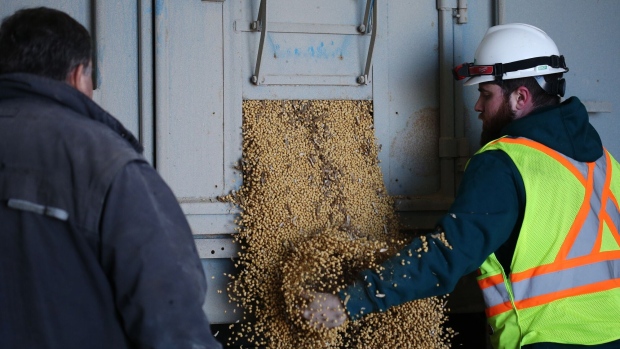Aftab Ahmed and Rajendra Jadhav
Thu, August 17, 2023
*
India may seek up to 9 mln tons of Russian wheat-source
*
Russia offering discounted wheat price - source
*
Indian wholesale wheat prices at 7-month high
NEW DELHI/MUMBAI, Aug 17 (Reuters) - India is in talks with Russia to import wheat at a discount to surging global prices in a rare move to boost supplies and curb food inflation ahead of state and national elections next year, according to four sources.
The imports would allow New Delhi to intervene more effectively in the market to drive down wheat prices that stoked inflation to a 15-month high in July.
"The government is exploring the possibility of imports through private trade and government-to-government deals. The decision will be made cautiously," one of the sources told Reuters, when asked about wheat imports from Russia.
India has not imported wheat through diplomatic deals in years. The last time India imported a significant amount of wheat was in 2017, when private traders shipped in 5.3 million metric tons.
The government's plan to import Russian wheat is one of the supply-side measures being considered to bring down prices of key commodities like fuel, cereals and pulse along with an extension of rural schemes to ease the impact of inflation on the poor, two of the sources with knowledge of the matter said.
Sources did not want to be named as the discussions are private and the final decision might be weeks away. India's finance, trade and government spokespersons did not reply to emails and messages seeking comment.
Last month, Sanjeev Chopra, the most senior civil servant at the federal food ministry, said there was no proposal to import wheat from Russia.
LOW WHEAT STOCKS
Although India needs only 3 million to 4 million metric tons of wheat to plug the shortfall, New Delhi might consider importing 8 million to 9 million tons of wheat from Russia to have a far bigger impact on prices, another source said.
Since the war in Ukraine last year, Russia has become India's second biggest seller of goods mainly on account of discounted oil purchases by New Delhi.
"Russia has indicated its willingness to offer a discount on prevailing market prices. There are no restrictions on the export of food commodities from Russia," one official said.
India is also importing sunflower oil from Russia and settling payments in U.S. dollars and is planning to use the same approach, the official added.
"India can easily secure a discount of $25 to $40 per ton from Russia. This will ensure that the landed cost of wheat remains significantly below local prices," said a dealer based in Mumbai with a global trade house.
Wholesale wheat prices in India surged around 10% over two months to a seven-month high in August on limited supplies.
Wheat stocks at government warehouses were at 28.3 million tons on Aug. 1, 20% below the 10-year average.
Last year, India banned wheat exports due to lower output, and this year's crop is also expected to be at least 10% lower than the government's estimate.
(Reporting by Aftab Ahmed and Rajendra Jadhav; Additional reporting by Mayank Bhardwaj; Editing by Sonali Paul)

By Pavel Polityuk
Updated Wed, August 16, 2023
KYIV (Reuters) -Ukraine said Russia had attacked its grain storage facilities overnight, but a container ship left the Black Sea port of Odesa on Wednesday despite Moscow's threat to target shipping after it abandoned an export deal.
In the Russian capital, five sources said authorities were considering reimposing stringent capital controls as the rouble showed the strains of Russia's invasion of its neighbour, which has brought huge military spending and Western sanctions.
The departure from Odesa of the Hong-Kong-flagged Joseph Schulte, trapped in the port since Russia invaded Ukraine on Feb. 24 last year, followed the latest Russian attack on the country's grain export infrastructure.
There was no comment from Moscow. An industry source said the port was continuing operations, tempering a rise in benchmark wheat prices in Chicago off their two-month low.
Russia has made regular air strikes on Ukrainian ports and grain silos since mid-July, when it pulled out of the U.N.-backed deal for Ukraine to export grain.
Moscow has threatened to treat any ships leaving Ukraine as potential military targets and on Sunday its navy fired warning shots at a ship travelling towards Ukraine.
Despite the threats, Ukraine last week announced a "humanitarian corridor" in the Black Sea to release cargo ships that have been trapped in its ports by a de facto Russian blockade, pledging to make clear they were serving no military purpose.
"A first vessel used the temporary corridor for merchant ships to/from the ports of Big Odesa," Deputy Prime Minister Oleksandr Kubrakov said on Facebook.
Bernhard Schulte Shipmanagement (BSM), which owns the ship jointly with a Chinese bank, confirmed that the ship was en route to Istanbul.
Kubrakov said it was carrying more than 30,000 metric tons of cargo in 2,114 containers, adding that the corridor would primarily be used to evacuate ships from the Black Sea ports of Chornomorsk, Odesa and Pivdennyi.
Moscow has not indicated whether it would respect the shipping corridor, and shipping and insurance sources have expressed concerns about safety.
Ukraine is a major grain and oilseeds exporter and the United Nations says its supplies are vital to developing countries where hunger is a growing concern. Neither Kubrakov nor the shipping company specified the cargo on board the Joseph Schulte but grain is rarely carried in containers.
BATTLEFIELD GAIN
The attacks on Ukraine's grain followed its launch of a Western-backed counteroffensive in early June to try to dislodge Russian forces from territory they occupy in the south and east.
Extensive Russian fortifications and minefields along the front line have made it hard for Ukrainian forces to break through, but they announced they had retaken another village on Wednesday, the first settlement they have declared recaptured since June 27.
"Urozhaine liberated," Deputy Defence Minister Hanna Maliar said on Telegram. "Our defenders are entrenched on the outskirts."
Ukrainian soldiers raised the country's flag above a broken war memorial in video released by the military and geolocated by Reuters to the village. It was not clear when it was filmed.
Russia's defence ministry did not confirm losing the settlement but said its artillery and war planes were attacking Ukrainian forces in the Urozhaine area.
The village's recapture would indicate Ukraine is pressing ahead with an offensive drive towards the Sea of Azov just over 90 km (55 miles) to the south, aiming to cut Russian forces occupying its southeastern coastline in half.
Inside Russia, the FSB security service said it had foiled an attempt by Ukrainian saboteurs to cross the border into Bryansk region for a second day in a row.
The conflict and accompanying sanctions have stretched Russia's finances, forcing the central bank to raise interest rates to 12% on Tuesday after the rouble dropped below 100 to the dollar. It firmed on Wednesday after the sources said officials were considering obliging exporters to sell their foreign currency revenues.
DANUBE PORTS
Ukraine turned to its Danube river ports after Russia pulled out of the international deal that had allowed Ukraine to export grain through the Black Sea, seeking better terms for exports of its own food and fertilizer.
The river ports, which had accounted for around a quarter of grain exports, have since become the main route out for Ukrainian grain, which is also sent on barges to Romania's Black Sea port of Constanta for shipment onwards.
Earlier this month, Russia attacked Izmail - Ukraine's main inland port across the Danube River from Romania, sending global food prices higher as it ramped up its use of force to prevent Ukraine from exporting grain.
Turkey, which brokered the grain deal alongside the United Nations, has expressed hope that Russia will rejoin it this month.
A senior U.N. official emphasised that the deal was vital to stabilise food prices on global markets to protect the most vulnerable, saying all efforts were being made to restart it.
"It's difficult," Rebeca Grynspan, Secretary-General of the United Nations Conference on Trade and Development told a news conference in Nairobi. "And obviously the bombardment of or shelling of grain infrastructure is not helping the markets."
(Additional reporting by Lidia Kelly, Gus Trompiz, Matthias Inverardi, Gabrielle Tétrault-Farber and Anna Magdalena Lubowicka; writing by Philippa Fletcher; editing by Angus MacSwan)













